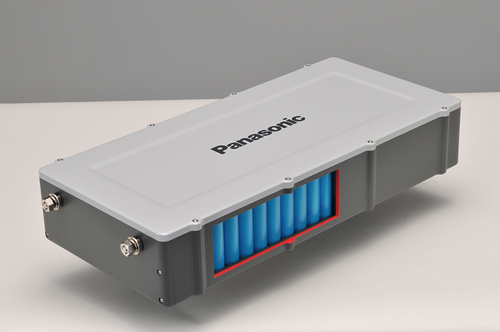
This is huge.
Cross posted from Biodiversivist
According to Physorg, Panasonic will market a battery for home use beginning next year. They claim it will power a house for a week, which does not tell us much. Your average American house consumes far more energy than your average Japanese house. At some point they will publish actual ratings for us to ponder as they did in an earlier press release announcing the production of a battery for light electric vehicles and one for storage, apparently smaller than the one shown above.
Many solar enthusiasts are excited because they will finally have a decent battery to store sunlight in (assuming it is affordable). It will charge and discharge rapidly, and last for a decade or so, like most other major appliances.
One day, all states will allow net metering. Net metering laws allow you to gain credit on your electric bill for the solar energy your panels contribute to the grid (the energy you could not use when the sun was shining so brightly).
Where I live, you get a year to use up the solar energy you contribute to the grid and the amount of electricity you are allowed to contribute is enough to actually power an average American home.
This is generally simpler and cheaper than trying to store your own electricity in the only affordable batteries available today–the clunky, short-lived lead-acid design that was also used in WW I submarines.
From a utility company’s perspective, net metered solar panels are essentially appliances that turn off the light switches in your house and many of your neighbor’s houses. They can’t charge for power they did not generate, or to put it another way, they can’t charge for power not used (your panels effectively turned off a lot of light switches by removing load).
This battery might cost less than the installation charge for connecting your system to the grid. It may finally be more cost effective to stay off the grid.
It can also be used as an emergency power source (like a generator) during outages. Batteries like this are the death knell for fuel cell and reciprocating engine backup generators. It does not have to be charged with solar power for that purpose but certainly, you would get a lot more bang for your buck if it were combined with solar, and with solar you would also get emergency power backup. This is an example of technology begetting technology, creating an exponential benefit.



